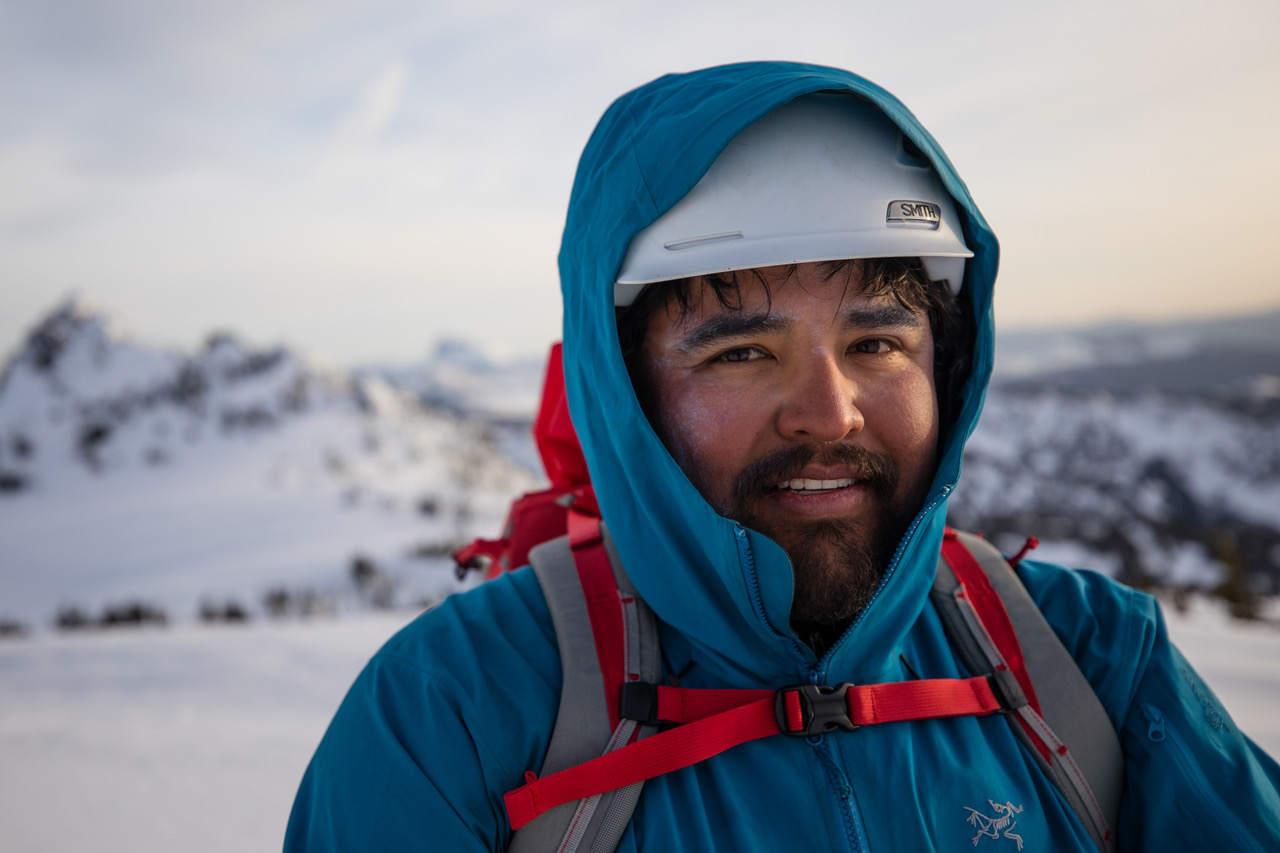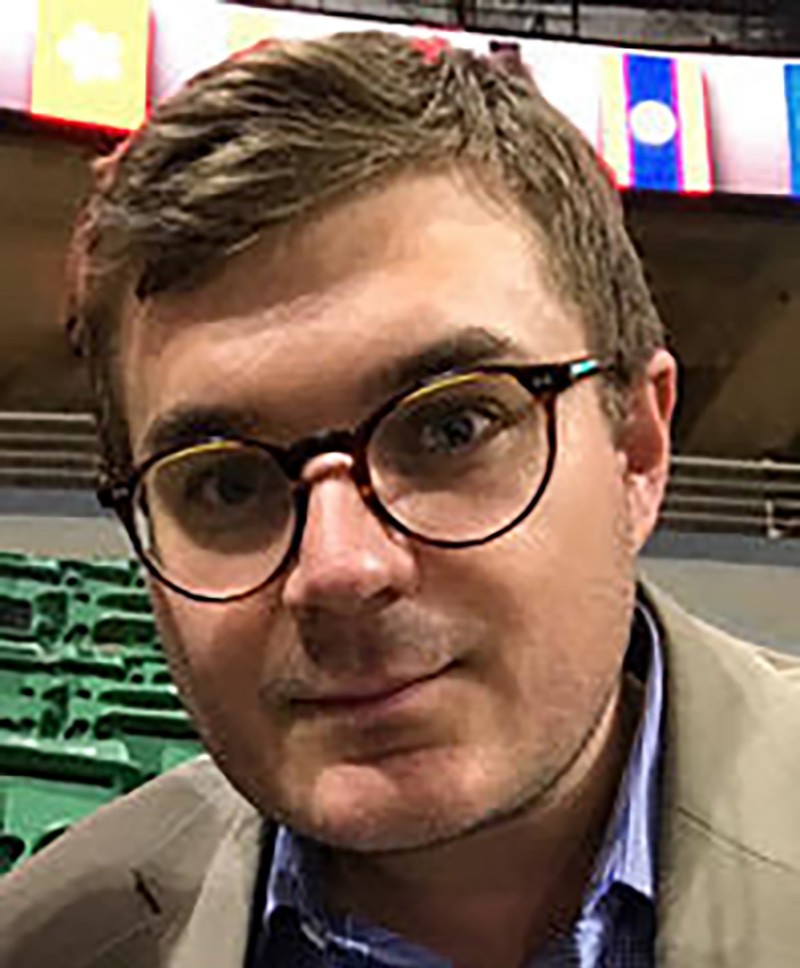
- Details
- By Ben Pryor
- Indigenous Entrepreneurs
What Dr. Len Necefer (Dine) started six years ago as a social media experiment to highlight the lack of Indigenous representation in outdoor recreation has evolved into a multi-faceted business that sells gear, tells stories, consults national brands, and advocates for Native people.
Necefer’s Tucson-based NativesOutdoors champions Native representation and empowerment of Indigenous peoples in outdoor recreation and entrepreneurship. With a dedication to breaking down barriers and creating meaningful connections, the company connects Indigenous communities with resources and opportunities within the outdoor industry.
As a Native-owned company, it supports Indigenous people as a media platform, hiring Indigenous artists and creators. The company offers advisory and consulting services to the outdoor industry on topics related to tribes, public lands, and outdoor recreation.
The outdoor recreation economy space is a lucrative industry, accounting for $454.0 billion in global revenues 2021. According to projections, the sector is expected to see significant growth in revenue in the coming years.
“My goal is to continue to create positive change for Indigenous peoples by pushing for policy and industry changes that recognize and support Indigenous communities,” Necefer said.
One of NativesOutdoors’ key missions is to increase access to outdoor recreation for Indigenous communities. The company collaborates with tribal governments, community organizations, and individuals to achieve this goal. They provide resources, information, and employment opportunities to Indigenous communities, helping them to connect with the wider outdoor industry.
The company’s efforts include a scholarship program led by NativeOutdoors co-founder Connor Ryan (Lakota). Ikon Pass and NativesOutdoors have partnered to give away 13 Ikon Passes — three sponsored by Colorado’s Winter Park Resort — for the ‘22/23 season, aiming to increase access to skiing and snowboarding for Indigenous peoples in the US.
The giveaway is open to skiers and riders of all levels, providing an Ikon Ski Pass and necessary gear. Despite skiing’s Indigenous roots, it has been inaccessible for many in the community. This initiative aims to change that, recognizing skiing as a hallmark of Indigenous peoples' connection to snow-covered landscapes.
NativesOutdoors focuses on promoting the representation of Native people in entrepreneurship, media, and film production. The company employs Native filmmakers and photographers to work on commercial projects with some of the largest brands in the industry, like REI, Eddie Bauer, Patagonia, Ruffwear, and Smartwool. One of their most notable collaborations was with REI on the film “Spirit of the Peaks.”
“As a researcher and policy advocate, my work focuses on the intersection of Indigenous peoples, natural resources, and environmental policy,” Necefer said.
With a doctorate in Engineering and Public Policy, his work has led to several notable policy outcomes, including historic Native voter turnout in Arizona, testifying before Congress, and co-organized tribal summits at the Outdoor Retailer show in partnership with the State of Colorado.
The documentary “Welcome to Gwichyaa,” produced by NativesOutdoors, led Necefer to testify about tribal sovereignty regarding energy and mineral resources to Congress’s House Natural Resources Committee.
Utah’s Gwich’in people and Indigenous groups are fighting to protect their lands and heritage from energy and mining development. The Gwich’in aim to preserve the Arctic National Wildlife Refuge, while they seek to defend Bears Ears National Monument. The film explores their similarities and highlights the need for support for the Gwich’in people.
“I have also directly engaged with tribal leaders and communities in Colorado’s Statewide Comprehensive Outdoor Recreation Plan and addressed issues of route naming within the climbing community and federal public lands,” Necefer said
Necefer has also published op-eds in publications like Outside Magazine, advocating for better representation of Indigenous people and highlighting the importance of cultural preservation. In a recent op-ed, Necefer reflects on the evolving significance of Indigenous land acknowledgments in the outdoor industry. He argues that acknowledging the land’s original inhabitants is insufficient and that the industry must also commit to honoring and supporting Indigenous communities.
In addition to his research and writing, Necefer is involved in various board and advisory work related to outdoor recreation and energy development. He serves on the board of the Honnold Foundation, which supports renewable energy projects worldwide. He advises the Colorado Outdoor Recreation Industry Office on diversity, equity and inclusion issues.
Through his storytelling, he explores the intersection of sports, environmental advocacy, and indigenous communities. His work has been featured in Alpinist and National Geographic and screened at over 50 film festivals.
NativesOutdoors works with outdoor brands regarding cultural appropriation. This work focuses on creating business ventures that benefit creative artists and preserving the meaning of designs through consultations with several outdoor companies. Their work is threefold: ensuring they’re paid fairly, preserving the integrity of designs, and not losing their cultural significance.
The consulting services help companies better understand how to work with tribal governments; recognize the inherent rights of tribes and their role in managing public lands.
Outdoor brands like Patagonia understand and acknowledge Native representation and authenticity are particularly important to a business in this space.
“I first met Len Necefer back in 2017 in Ahwahnee (Yosemite) at a diversity gathering,” said Whitney Clapper, Patagonia Head of Community Relationships and Impact. “Trying to focus on pulling invasive species, I was captivated by Len’s story of the work that he’d recently done with the Department of Energy in rural Alaska and his recently launched social media project, NativesOutdoors.”
“The relationship and mutual respect evolved from there, and continues to exist today. Over the years, Len’s wisdom and guidance has led us through relationships with various Indigenous communities, including Navajo, Gwich’in, San Carlos Apache, and more.”
“We were also lucky enough to sign on Connor Ryan as a brand snow athlete, from the NativesOutdoors team,” said Clapper. “The traditional Indigenous knowledge that Len and the crew at NativesOutdoors provide us and the greater outdoor industry is invaluable, and we have a lot more to learn. We are honored to be in relation with Len, Connor, and the crew at NativesOutdoors.”
